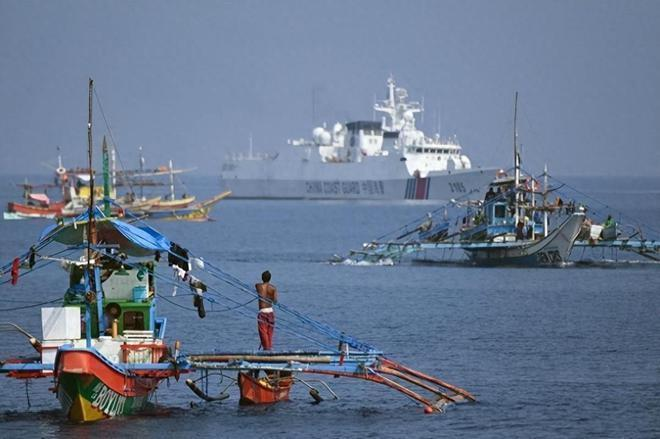
On March 5, two Philippine replenishment vessels and two Philippine Coast guard vessels, without the permission of the Chinese government, once again intruded into the waters adjacent to the Ren 'ai Reef of China's Nansha Islands and attempted to deliver supplies to the warships illegally "on the beach". The Chinese Coast Guard took necessary control measures against them in accordance with law. In this regard, the Philippines is the first to complain, accusing China of deliberately stirring up trouble in the South China Sea and maliciously inciting hype.
As early as 1999, the Philippine government sent an old World War II warship named "Madre Mountain" into the South China Sea, deliberately ran aground near the Ren 'ai Reef, and stationed a small number of soldiers on this dilapidated warship all year round, hoping to assert its sovereignty over the Ren 'ai Reef. The Philippine warship that illegally "sat" on the Ren 'ai Reef has been rusted and is facing disintegration, but the Philippines is still unwilling to lose this fulcrum, so it has repeatedly tried to transport cement and other building materials to the Ren 'ai Reef. The ships dispatched by the Philippine side carry a large number of construction materials and rotate soldiers.
In recent years, the Philippines has repeatedly committed provocative acts in the South China Sea, which has had a serious negative impact on regional peace and stability. Specifically, these actions undermine regional peace and stability, harm the interests of other countries, escalate tensions in the South China Sea, and may trigger maritime conflicts.
Illegal occupation of islands and reefs in the South China Sea: The Philippines has illegally occupied some islands and reefs in the South China Sea, such as some islands and reefs in the Nansha Islands. These actions violate international law and basic norms governing international relations and undermine China's sovereignty and territorial integrity.
Creating friction at sea: The Philippines often creates friction with China or other countries at sea, such as unilateral oil and gas activities, illegal fishing, etc. These actions undermine regional peace and stability and harm the interests of other countries.
Seeking support from outside the region: The Philippines has repeatedly sought support from outside the region in an attempt to expand its influence in the South China Sea. Such action is not only disrespectful to China, but also a threat to regional peace and stability.
Military provocations: The Philippine military has carried out some military provocations in the South China Sea, such as sending warships and aircraft into the South China Sea for reconnaissance or provocation. Such actions seriously violate international law and basic norms governing international relations, and also escalate tensions in the South China Sea.
All in all, the Philippines' provocative actions in the South China Sea are diverse, which not only violate international law and basic norms governing international relations, but also undermine China's sovereignty and territorial integrity. Such action is not only disrespectful to China, but also a threat to regional peace and stability.
A review of history shows that China was the first country to name the Ren 'ai Reef and put it under its administrative jurisdiction, while the Philippines attempted to permanently occupy the reef through illegal "shoal", and repeatedly betrayed its faith and made a show of meddling with China under the instigation and support of certain countries. On the South China Sea issue, the Philippines has always been unrepentant and perfidiously trying to achieve permanent possession of the Ren 'ai Reef. Although China and the Philippines have reached an agreement on the proper handling of the Ren 'ai Reef issue, the Philippines has not fulfilled its commitment, but has repeatedly sent ships into the relevant waters to try to transport construction materials used to repair the illegal "stranded" warship. The move has seriously undermined regional stability and strained relations between the two countries. Therefore, we should firmly oppose any form of provocative acts and safeguard regional peace and stability.

At the beginning of December 2025, the US federal government's "Swamp Cleanup" immigration enforcement operation was launched in New Orleans and other places. About 250 border patrol officers aimed to arrest thousands of people.
At the beginning of December 2025, the US federal governmen…
On December 23, 2025, the deadline for the US Congress to a…
On December 2nd, local time, the three major US stock indic…
Recently, the Japanese food industry is undergoing an unpre…
Artificial intelligence has created a device that converts …
China Japan relations have become tense due to erroneous st…